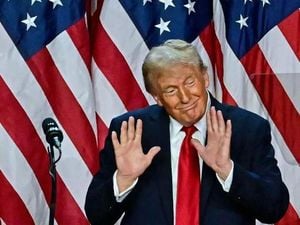Volkswagen AG, the formidable German carmaker, finds itself at a crossroads as it grapples with what many are calling a strategic crisis. The once-celebrated brand, known for its iconic Beetle and reliable Sedans, is now feeling the heat from fast-evolving market dynamics, particularly from its arch-rival, Tesla, and the perilous waters of the Chinese automotive market. Following the peak of global car sales back in 2017, much has changed, and Volkswagen is now uniquely vulnerable to shifts within the industry, and its executive leadership must craft new strategies to navigate these challenging times.
Once considered the benchmark for automobile manufacturers, Volkswagen's relationship with Tesla seemed almost brotherly just a few short years ago. Herbert Diess, the former CEO, and Tesla’s Elon Musk frequently exchanged accolades, recognizing Tesla's innovation and progress as inspirational. Back then, Musk even hailed Diess for his commitment to electrification, asserting he was doing more than any other major car manufacturer to pivot toward electric vehicles (EVs). Fast forward to today, and the narrative has flipped dramatically; Musk has amassed significant wealth—reportedly ten times more than he had just three years ago—while Volkswagen's fortunes have dwindled.
Tesla enjoys market valuation figures 14 times greater than those of Volkswagen, marking a stark departure from what used to be perceived as equal footing between the two giants. This shift can largely be attributed to Volkswagen's lagging transition toward electrification and its deep ties with the Chinese market, which is increasingly proving to be both its biggest asset and greatest liability.
China was once the shining beacon of opportunity for Volkswagen; by 2017, nearly half of the ten million vehicles sold were dispatched to the Chinese markets. This included everything from their popular Passat models to the upscale Audi line. Fast-forward to 2023, and the company experienced a staggering sales decline, with only three million units moving through the Chinese market last year—a staggering fall marked by nearly 20% fewer sales compared to the first half of 2022.
Analysts are beginning to raise alarms. Bill Russo, who has spent over two decades studying the automotive sector in China, remarked, “If you lose your biggest and most profitable market, that's going to affect the whole system. They rose the highest, and they have the most to lose.” This encapsulates the precarious position Volkswagen currently faces: its legacy built on success in China is gradually but devastatingly crumbling.
The intertwined challenges Volkswagen faces have emerged from several avenues. Not only does the company deal with pricing pressures as electric vehicle competition surges, but it has also faced changing consumer perceptions about its products. A once-impenetrable stronghold is now met with sustained interest from newer, more agile competitors delivering fresher, more technologically advanced alternatives. Add to this, internal struggles over efficiency and productivity have resulted in plans to scale back production significantly.
Compounding these issues, Volkswagen's approach to the Chinese market is under intense scrutiny. The company formed partnerships with local manufacturers and accepted to share profits. This contrasted sharply with Tesla's model of establishing wholly-owned factories, allowing the American giant to maintain tight control of its operations and profits. Some speculate this could be leading Volkswagen to reassess its strategy to avoid losses.
Looking at current trends, Volkswagen is adjusting its outlook on the EV market. The outlook has shifted, with notable reductions in forecasts for electric vehicle production and sales targets. These adjustments come amid rising concerns over feasibility and profitability, leading to strategies echoing fears of delaying the company’s long-term objectives.
Worsening matters, Volkswagen's trouble within China has become emblematic of broader industry concerns. The traditional automaker is currently facing the highest tariffs imposed by the European Commission on EVs made by its China-based partner, SAIC. This has placed Volkswagen’s costs under pressure, making it difficult for them to stay competitive against brands like Tesla, which have maneuvered their way through tricky tariff terrains.
Experts note Tesla’s ability to secure lower duties, even as they face challenges with their China operations. This juxtaposition of fortune and misfortune starkly highlights the chasm between the two companies and raises questions about Volkswagen's immediate future.
Internal evaluations are now underway as Volkswagen seeks to reassess its production scopes and capabilities. There’s talk of potentially scaling back car assembly plants, and all eyes are now on maintaining workforce morale during these tumultuous transitions. The anxiety around job security parallels the uncertainty expressed by suppliers and stakeholders who are left pondering the direction of one of Europe’s most significant automotive manufacturers.
Strategists stress the necessity for Volkswagen to redefine its narrative and reposition itself amid growing competition, particularly on electrification. The question remains whether Volkswagen can pivot quickly enough to reclaim its stature by leveraging its deep-rooted heritage, premium quality, and the vast manufacturing experience it has garnered over generations.
The current leadership's challenge is not just about staving off competition; it’s about preparing for the future where electric and hybrid vehicles become the norm. Aggressive investment must prioritize research and development to embrace innovation head-on. This urgency echoes throughout the organization as automakers worldwide race toward the electric frontier, powered by state support and consumer demand.
While Tesla continues soaring, setting the stage for the future of mobility, Volkswagen is caught attempting to retrace its steps to regain lost ground and reconnect with its core values and traditions. The road forward is fraught with obstacles, prompting industry observers to wonder if Volkswagen will cultivate the agility to adapt swiftly or if it will remain stuck, battling colossal challenges as it attempts to thrive.
Reflecting on timings and pressures, the question looms large: will this legacy manufacturer manage to roll out electrification strategies to keep up with the fast-breaking trends? Or are these predictions merely premature, with fears overwhelming optimism? The automotive world is watching closely as this storied company tries not to slip quietly from relevance.



